A cult is a religion with no political power
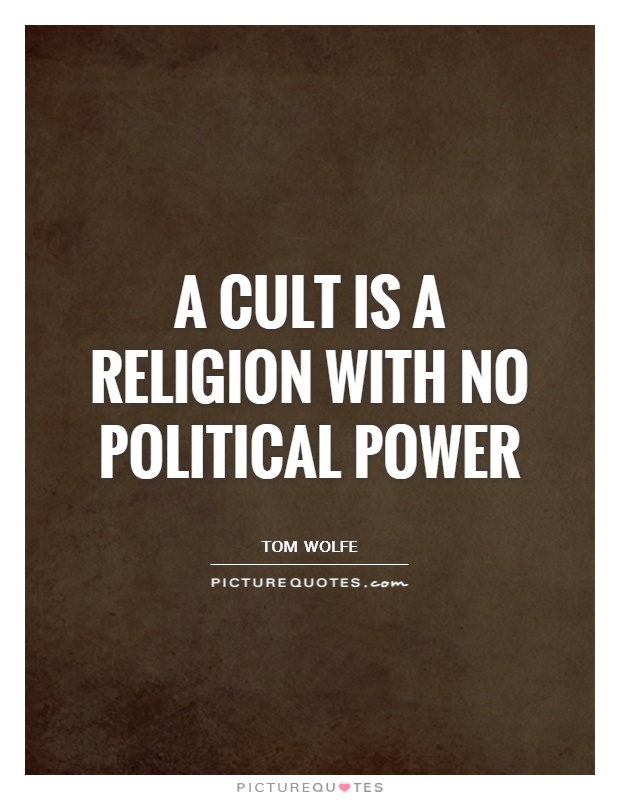
A cult is a religion with no political power
Tom Wolfe, the renowned American author and journalist, was known for his keen observations and sharp wit when it came to dissecting various aspects of society. One of the topics he delved into was the concept of cults and their relationship to political power. In his works, Wolfe often explored the idea that a cult is essentially a religion that lacks political power.Wolfe's perspective on cults as religions without political power can be seen in his book "The Electric Kool-Aid Acid Test," which follows the journey of author Ken Kesey and his band of Merry Pranksters as they embark on a cross-country trip in a psychedelic bus. The group's unconventional beliefs and practices, centered around the use of LSD and other mind-altering substances, could be seen as a form of cult-like behavior. However, despite their fervent following and countercultural influence, the Merry Pranksters did not possess any significant political power.
This idea of cults lacking political power can also be applied to other religious movements and groups that have emerged throughout history. For example, the Branch Davidians, led by David Koresh, were a religious sect that gained notoriety for their standoff with law enforcement in Waco, Texas in 1993. While the Branch Davidians had a devoted following and a distinct set of beliefs, they ultimately did not have the political influence to prevent the tragic outcome of the Waco siege.






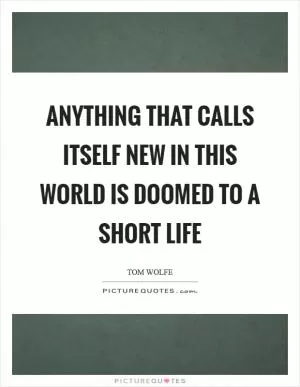
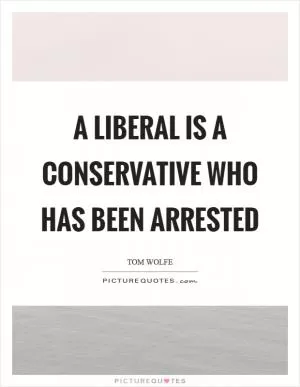
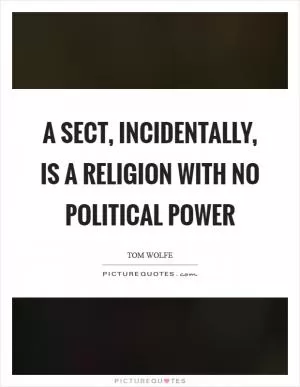


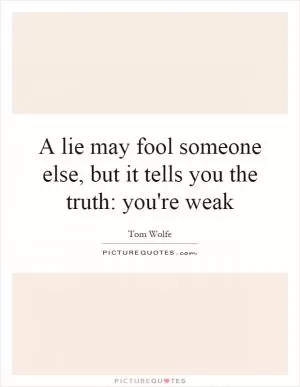
 Friendship Quotes
Friendship Quotes Love Quotes
Love Quotes Life Quotes
Life Quotes Funny Quotes
Funny Quotes Motivational Quotes
Motivational Quotes Inspirational Quotes
Inspirational Quotes